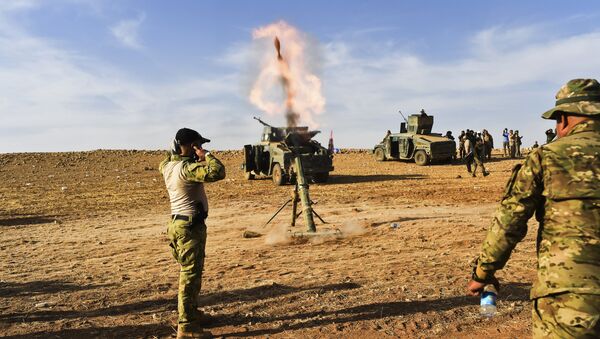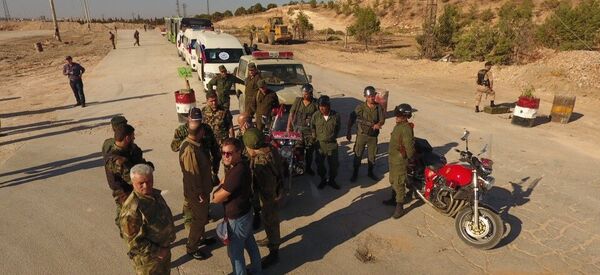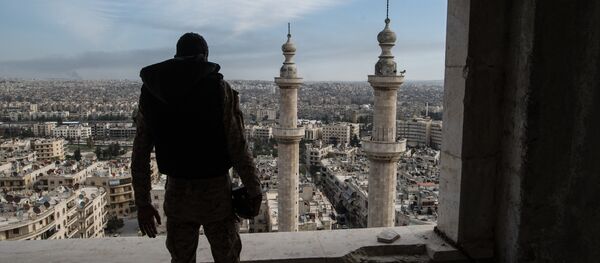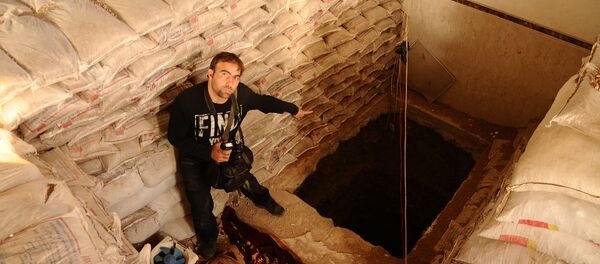Khrolenko recalled that over the last several months, Aleppo has become a battlefield between government forces, jihadists, and numerous opposition groups. Militant-held eastern Aleppo is encircled by government forces and the fighting has affected thousands of civilians still trapped in the city.
In a separate development on October 17, Iraqi Prime Minister Haider Abadi announced the start of a military operation to recapture Mosul from the internationally-outlawed terrorist organization Daesh, with the help of US-led international coalition airstrikes.
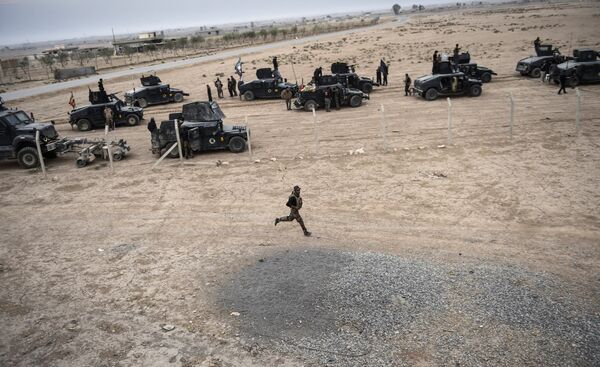
Khrolenko also recalled that earlier, Russian Foreign Minister Sergei Lavrov said that he sees no difference between the situations in Syria's Aleppo and Iraq's Mosul. According to Lavrov, in both cities there is a need to fight the terrorists, which inevitably complicates the day-to-day survival of civilians.
The US State Department, Khrolenko said, was quick to condemn such a stance, citing "besieged noble rebels and fighters [clashing] with the Assad regime" in Aleppo and the coalition's efforts to destroy Daesh terrorists in Mosul, the largest city held by the Islamic State in terms of its pre-conflict population.
Khrolenko drew attention to the fact that the Russian warplanes continue to stay out of a 10-km (six-mile) zone around Aleppo amid efforts by the Russian Center for Syrian reconciliation to deliver humanitarian aid to Aleppo's citizens every day.
US-led coalition strike killed dozens of civilian mourners 30km from Kirkuk – Russian MoDhttps://t.co/54iN2oPcLX
— RT (@RT_com) 23 октября 2016 г.
The coalition airstrikes on Mosul, meanwhile, show no sign of abating, with Iraqi TV channels reporting clashes between locals and Daesh terrorists who have repeatedly used civilians as "human shields."
"Dozens of civilians have already died in the coalition airstrikes but nobody is willing to turn to the UN Security Council to voice a protest," Khrolenko said, referring to the US envoy to the UN Samantha Power, who accused Russia and Syria of organizing a "massive and barbarian offensive on Aleppo."
According to the Atlantic Council, "Russia is fighting in Syria for at least some of the following reasons: protecting an ally…, protecting its access to a naval resupply depot in the Mediterranean; seeking to be taken seriously as a global player; fighting Islamists; and interrupting a perceived Western-led regime change campaign in Europe and the Middle East."
"Deliberately or not, Atlantic Council underlines the fundamental differences between operations in Aleppo and Mosul: Russia is legitimately defending Middle Eastern stability, while the US-led coalition upholds a lawless right to 'regime change'," Khrolenko concluded.
In the meantime, Russian Defense Ministry spokesman Maj. Gen. Igor Konashenkov said on Tuesday that the coalition has carried out 25 sorties, conducting 21 strikes on Mosul over past 24 hours.
More than 30,000 Iraqi and 4,000 Kurdish fighters are taking part in the offensive on Mosul, backed by about 5,000 US troops and supported by US-led coalition airstrikes. Mosul has been occupied by Daesh since 2014.

